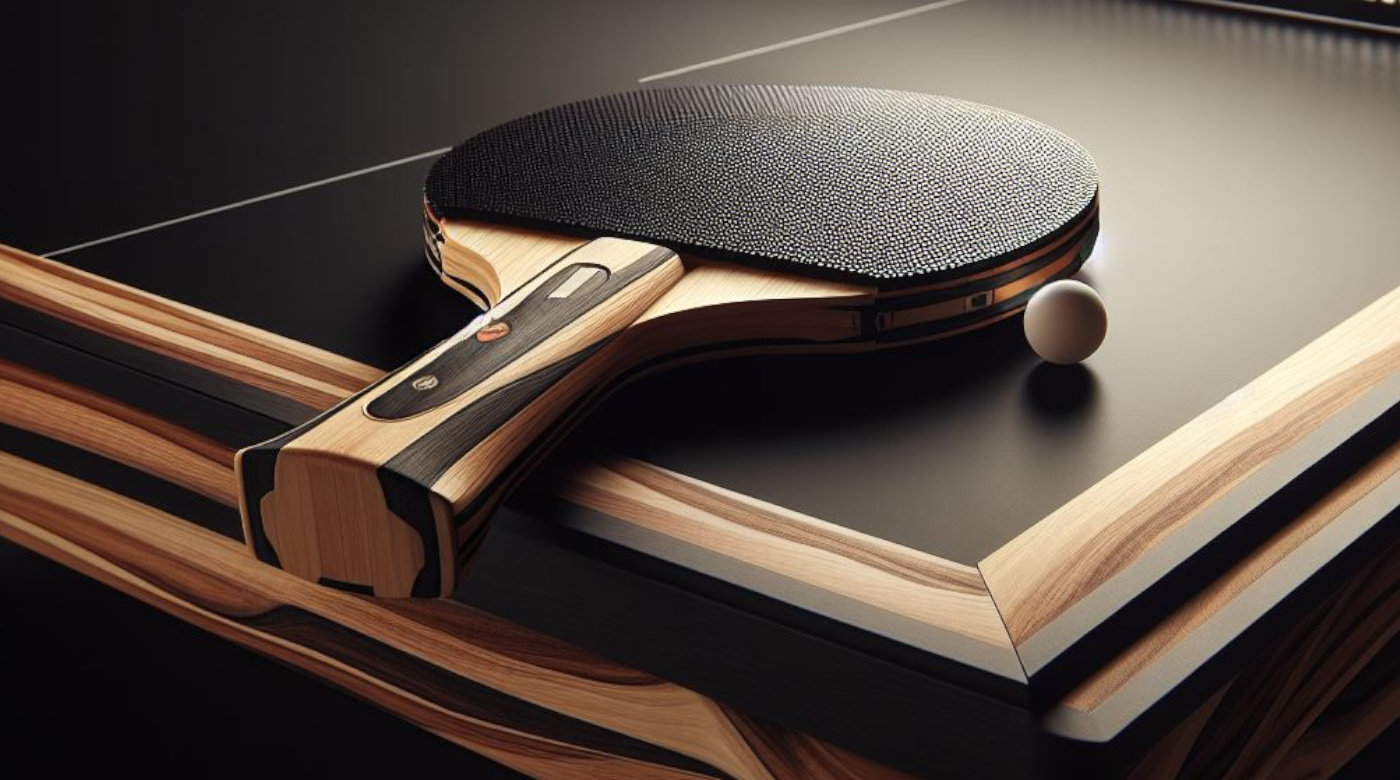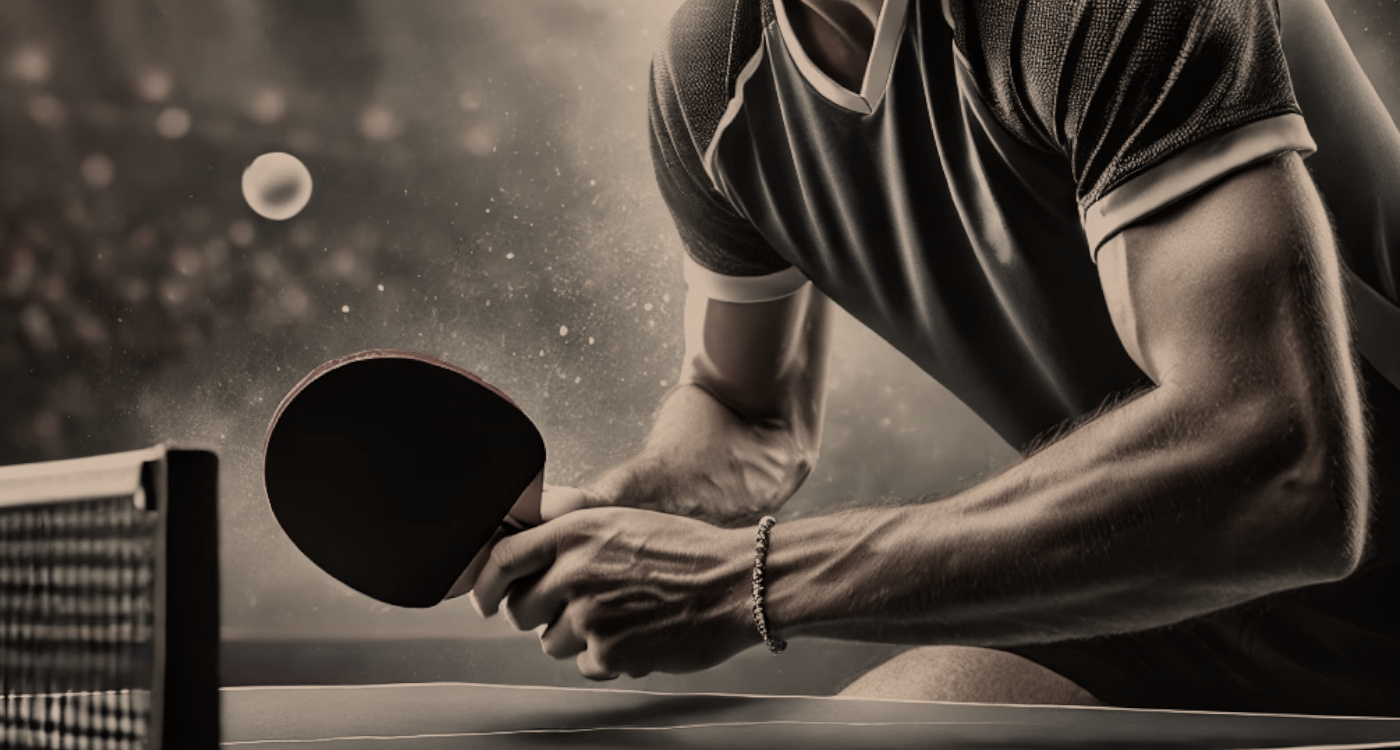The Mental Strategies of Top Table Tennis Players
Table tennis, nicknamed “the game of milliseconds,” demands impressive technical and physical mastery. However, it is often mental skills that set the world’s best players apart.
Legends like Jan-Ove Waldner, Ma Long, and Liu Guoliang have shown that the ability to handle pressure, read opponents, and stay focused during critical moments is essential for excelling. Let’s delve into the mental strategies that make the difference at this elite level.
1. Understanding the Importance of Mental Preparation
Even before stepping onto the court, top players invest heavily in their mental preparation. This step allows them to arrive confident and ready to face any situation.
- Jan-Ove Waldner, nicknamed “The Mozart of Table Tennis,” was known for his ability to visualize every shot before even playing it. During the 1997 World Championships, he studied all possible playing styles of his opponents, enabling him to adapt his game instantly.
- Visualization: Players like Ma Long visualize their victories, conditioning their minds to achieve those results.
- Setting clear goals: For example, Timo Boll sets specific targets for each match, such as achieving a certain percentage of effective returns.
- Pre-competition routine: Champions follow precise rituals to get into an optimal state of “flow.”
Professional table tennis players spend hours refining both their technique and mental preparation. For more information on global competitions and elite players, you can visit the official website of the International Table Tennis Federation (ITTF).
2. Managing Stress During Critical Moments
In high-stakes competitions, where even the smallest error can be costly, managing stress becomes crucial. Players use advanced techniques to turn pressure into a performance booster.
- During the 2012 Olympic Games, Ma Long demonstrated impressive mastery of pressure. After losing a critical set, he used breathing techniques to calm his mind, regain control, and ultimately win the match.
- Deep breathing: Helps regulate stress. Waldner used this method between sets to reset his focus.
- Focusing on the present moment: Players avoid dwelling on past mistakes and concentrate solely on the current point.
- Positive thinking: For example, Liu Guoliang repeated affirmations like, “Every mistake is an opportunity to learn.”
3. Maintaining Focus During Long Rallies
Table tennis requires sustained attention, even during fast and unpredictable rallies. Even a slight lapse in concentration can be costly.
- Fan Zhendong, known for his speed and precision, practices mindfulness exercises to enhance his focus. During the 2018 World Championship final, he maintained exceptional concentration despite a tense match against Harimoto.
- Focus points: Concentrating on the ball and the opponent’s movements, as Waldner did to anticipate shots.
- Routines between points: Taking a few seconds to bounce the ball or adjust grip, as Ma Long frequently does.
- Mindfulness exercises: Using awareness techniques to stay grounded in the moment.
4. Developing Resilience in the Face of Adversity
Champions stand out for their ability to bounce back after a mistake or loss. This requires strong mental resilience and a learning-oriented attitude.
- In a critical match in 1992, Jan-Ove Waldner lost the first two sets. Instead of becoming discouraged, he calmly analyzed his opponent’s weaknesses, turned the situation around, and won the match to become Olympic champion.
- Learning from mistakes: Losses are seen as opportunities to improve.
- Adaptability: Adjusting strategies in real-time, as Liu Guoliang has done in many tournaments.
- Growth mindset: Believing that consistent effort leads to success.
5. Reading the Opponent’s Game: A Key Mental Strategy
Anticipating an opponent’s moves is an art mastered by the best players. This requires sharp observation and quick adaptation.
- Ma Long is an expert in reading the game. In the 2016 Olympic final, he observed that his opponent rarely varied his service returns and used this insight to gain a significant advantage.
- Pattern recognition: Identifying the opponent’s preferences.
- Quick anticipation: Predicting movements to act faster.
- Strategic adaptation: Changing tactics based on gathered cues.
6. Mental Discipline in Daily Life
Mental skills are not developed only during matches but also through consistent practice and disciplined habits outside competitions.
- Timo Boll has incorporated meditation and reading sports psychology into his daily routine, helping him remain competitive after decades at the top.
- Regular meditation: Enhances mental clarity and reduces stress.
- Reading and learning: Studying books on mental performance.
- Pressure training: Simulating high-stress conditions to get accustomed to match pressure.
7. The Importance of a Mental Coach
Top players often work with mental coaches to optimize their psychological performance. These experts provide support and tailored strategies.
- As a coach, Liu Guoliang not only trained players technically but also instilled mental resilience, enabling stars like Ma Long and Zhang Jike to dominate the sport.
- External feedback: An outside perspective to identify mental weaknesses.
- Tailored strategies: Personalized techniques for each player.
- Consistent motivation: Maintaining morale during tough moments.
Mental Strength in the Service of Victory
Elite table tennis players like Jan-Ove Waldner, Ma Long, and Timo Boll show that success is not only based on physical abilities but also on exceptional mental preparation. Stress management, resilience, and strategic anticipation are at the core of their success. By adopting their strategies, every player—whether amateur or professional—can improve their game and cultivate a winning mindset.
In summary, mental strategies in table tennis are essential for high-level players. Through focus, stress management, and reading the game, these strategies enable champions to perform consistently, even under pressure.
Featured Image: Mamba Blades “Table Tennis Mental Strategies”



